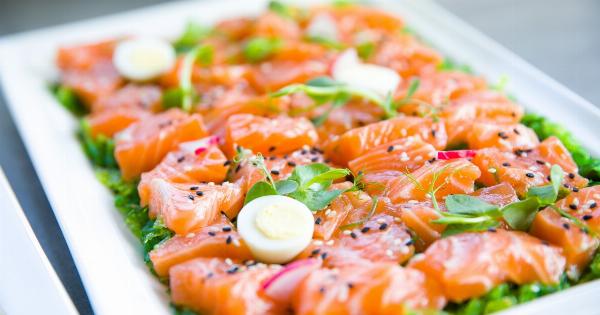Reino Syndrome is a rare genetic disorder that affects the development of the skeletal system, particularly the bones in the hands and feet.
This condition is characterized by shortened fingers and toes, and in some cases, a can-like appearance of the bones in the forearm and lower leg. While there is no known cure for Reino Syndrome, managing the symptoms with proper nutrition can help improve quality of life for those with this condition.
The Importance of Nutrition
Nutrition plays a critical role in the management of Reino Syndrome. A well-balanced diet can help promote bone growth and support overall bone health, which is especially important for individuals with skeletal abnormalities.
Adequate protein intake is also essential in supporting muscle growth and development, as well as promoting overall immune function.
Calcium and Vitamin D
Calcium and vitamin D are two nutrients that are essential for building and maintaining strong bones. It is particularly important for individuals with skeletal abnormalities to consume enough of these nutrients.
In addition to consuming calcium and vitamin D-rich foods, individuals with Reino Syndrome may benefit from taking supplements to ensure they are meeting their daily requirements.
Iron and Vitamin C
Iron and vitamin C are two nutrients that are important for maintaining overall health and well-being. Iron is essential for producing red blood cells and carrying oxygen throughout the body.
Vitamin C plays a critical role in immune function and supports the absorption of iron from foods. Consuming iron-rich foods, such as lean meats, beans, and dark leafy greens, along with vitamin C-rich foods, such as citrus fruits and bell peppers, can help ensure adequate intake of both nutrients.
Omega-3 Fatty Acids
Omega-3 fatty acids are a type of healthy fat that are critical for optimal brain and heart health. These healthy fats can also help reduce inflammation in the body, which is important for individuals with skeletal abnormalities.
Consuming omega-3 rich foods, such as fatty fish, nuts, and seeds, can help support overall health and well-being.
Protein
Protein is essential for building and maintaining muscle mass, which is particularly important for individuals with skeletal abnormalities.
Consuming protein-rich foods, such as lean meats, poultry, fish, beans, and legumes, can help promote muscle growth and development.
Hydration
Staying hydrated is important for overall health and well-being. Proper hydration can help promote nerve and muscle function, support immune function, and promote healthy digestion.
Individuals with Reino Syndrome should aim to consume at least eight glasses of water per day, and more if they are engaging in physical activity or living in a hot climate.
Foods to Avoid
Individuals with Reino Syndrome should avoid consuming excessive amounts of salt and sugar, as well as processed and fast foods. These types of foods can increase inflammation in the body and contribute to overall poor health.
Instead, individuals should focus on consuming a well-balanced diet that includes nutrient-dense foods.
Conclusion
While there is no known cure for Reino Syndrome, managing the symptoms with proper nutrition can help improve quality of life for those with this condition.
Consuming a well-balanced diet that includes foods rich in calcium, vitamin D, protein, iron, vitamin C, omega-3 fatty acids, and plenty of water can help support overall health and well-being for individuals with Reino Syndrome.































